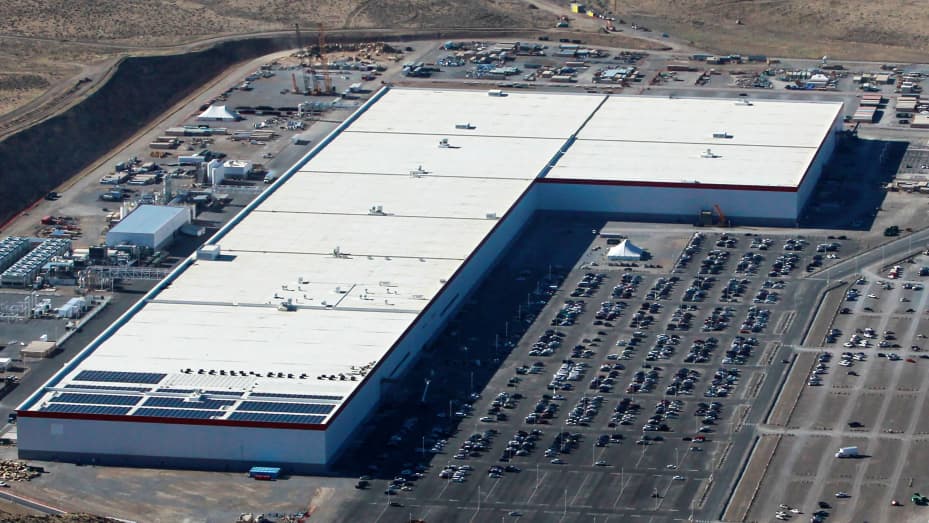
According to a story published on Wednesday by Nikkei Asia, Panasonic intends to develop a new battery factory in Kansas to make high-capacity cells for Tesla.
Democratic Kansas Governor Laura Kelly has arranged a press conference where she is anticipated to provide information on the Panasonic facility.
Previously, Panasonic invested in and jointly operated the Gigafactory, a battery manufacturing facility in Sparks, Nevada, west of Reno (or Gigafactory 1). The expansive factory took a while to turn a profit because of high defect rates and slower-than-expected mass production but eventually did so in 2021.
Along with its plans to ramp up vehicle production at new factories close to Berlin and Austin, Texas, Tesla's desire for battery cells is growing. In 2021, the firm reported delivering 936,172 vehicles annually, an 87 per cent increase over 2020. The price of battery components is increasing because of inflation, an increase in the production of electric vehicles, supply chain issues made worse by the ongoing pandemic, and Russia's savage invasion of Ukraine.
The Kansas City Star, a local news source, earlier indicated that Panasonic may choose to locate its new production in De Soto, Kansas, at a former ammunition factory. This factory is expected to employ about 4,000 workers. Requests for comment from the governor's office and Panasonic were not immediately fulfilled.
To date, Panasonic and other suppliers, such as CATL in China, have been a major source of battery cells for Elon Musk's electric vehicle company's energy storage systems for use in residential, commercial, and grid-scale installations, as well as the high-voltage battery packs that power their cars.
However, Tesla has also been working on developing and using its own 4680 battery cells for commercial purposes. In order to achieve this goal, it bought Canadian battery manufacturing firms, such as Hibar Systems.
Tesla said in October 2021 that it would switch to lithium-iron-phosphate battery cell chemistry for all of its standard-range vehicles (LFP).
cells rather than nickel-cobalt-aluminium (NCA) cells, which Tesla intended to keep using in its longer-range vehicles.
Panasonic is not alone in expanding its battery manufacturing investments in the U.S. In January this year, General Motors and LG Energy announced plans to invest more than $2 billion in a new battery plant in Michigan. And Jeep-maker Stellantis and Samsung are investing around $2.5 billion in a battery plant in Kokomo, Indiana, to help the automaker transition to electric vehicles.
According to research by Canalys, global sales of battery electric vehicles amounted to 4.5 million units in 2021, representing about 69% of overall electric vehicle sales, including plug-in hybrid electrics.







